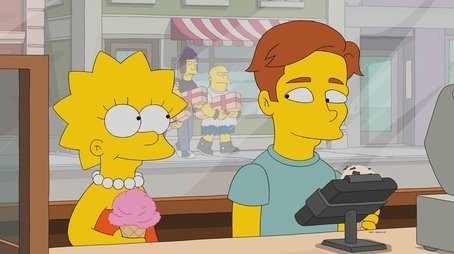
Sorry, we have not watched this yet.

When the Simpsons go to a STEM conference, Lisa falls for a crooning jazz pianist named Brendan. Meanwhile, Bart discovers that he has an affinity for chemistry
Sorry, we have not watched this yet.